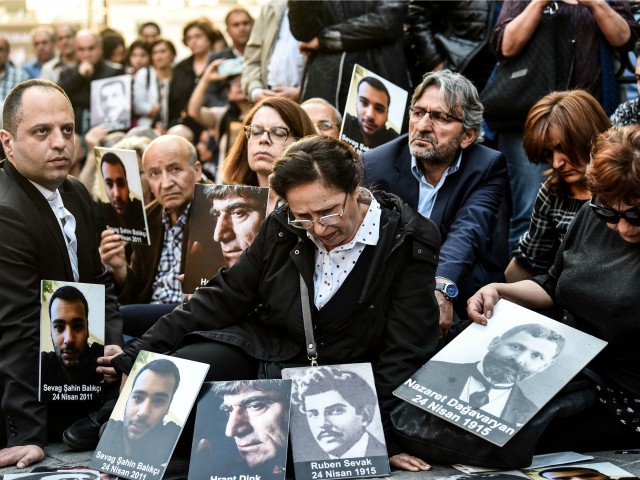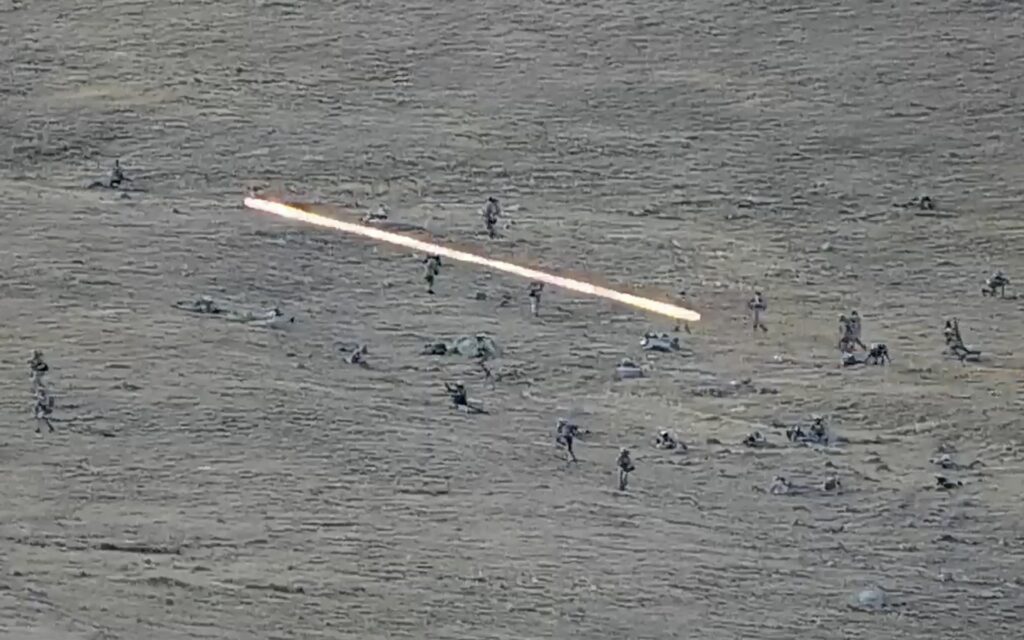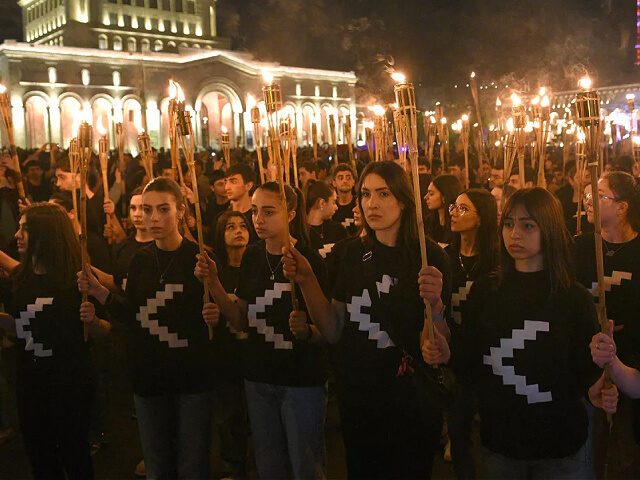Armenia on Sunday observed the 108th anniversary of the Armenian Genocide with a procession of 10,000 torchbearers marching through the capital city of Yerevan.
Some of those torches were then employed to burn the national flags of Turkey and Azerbaijan, a sign of extremely tense relations between Armenia and those two countries.
The Armenian Genocide, recognized by many historians as the first of the 20th Century’s terrible campaigns to systematically exterminate an entire people, began on April 24, 1915, with mass arrests of Armenian leaders and intellectuals by the Ottoman Empire, the precursor to the modern Turkish government.
The Ottomans commenced deporting Armenians, who they portrayed as a subversive threat to their efforts in World War I, in huge numbers across brutal terrain. Many were incarcerated in concentration camps. By the time this act of ethnic cleansing was complete, some 90 percent of the Armenian population in Turkey was gone — and up to 1.5 million of them were dead.

People hold portraits of Armenian intellectuals – who were detained and deported in 1915 – during a rally on Istiklal Avenue in Istanbul on April 24, 2018, held to commemorate the 103nd anniversary of the 1915 mass killing of Armenians in the Ottoman Empire. (Photo credit should read BULENT KILIC/AFP/Getty Images)
There is a great deal of dispute over the exact number of the dead and the Turkish government to this day disputes the “genocide” label. Armenian Prime Minister Nikol Pashinyan called on Turkey, and the world, to formally recognize the genocide in his Remembrance Day address:
The April 24 march is perhaps the most impactful occurrence that has predetermined and is predetermining our reality, an exceptional day to think about our history, past and future. What do young parents think when walking to the Tsitsernakaberd memorial, often holding the hands of young children, or what do elderly people with more life experience think?
They are probably thinking about two questions. Why did the Meds Yeghern happen and what should be done to prevent its recurrence? Hundreds and thousands of works have been written about the causes of the Armenian Genocide, many reasons and motives have been revealed. As for the methodology to exclude the recurrence of such a crime, it largely depends on our understanding of the concepts of “state” and “region”.
The state, only a developed and sovereign state is able to ensure the existence and security of our people, and everyone has something to do for the establishment of the state – with education, work, civil responsibility and respect for law.
The Tsitsernakaberd Armenian Genocide Memorial Complex is the official national memorial to the victims. “Meds Yeghern” is Armenia’s preferred term for the genocide, translating literally to “Great Crime.” Former U.S. Presidents Barack Obama and Donald Trump both used the term Meds Yeghern during their commemorative remarks to the applause of Armenians and the consternation of Turkey.
Armenia held its 108th anniversary commemoration at a time of mounting tension with Azerbaijan. The two countries have contested the mountainous Nagorno-Karabakh region for decades, building up to a brief but intense conflict in 2020 that ended with Azerbaijan taking control of much of the territory. Pashinyan was almost unseated by public protests over concessions he made to Azerbaijan in a Russian-brokered deal to end the war.
Sporadic fighting broke out again in September 2022, and the situation may have once again reached the brink of war on Sunday, as Azerbaijan established a militarized border checkpoint on the only road connecting the enclave of Armenian Christians living in Nagorno-Karabakh to Armenia.

In this image taken from a YouTube footage released by Armenian Defense Ministry on Tuesday, Sept. 13, 2022, shows Azerbaijanian servicemen crossing the Armenian-Azerbaijani border and approaching the Armenian positions. Armenia’s prime minister says that 49 soldiers have been killed in nighttime attacks by Azerbaijan. (Armenian Defense Ministry via AP)
Azerbaijan was charged with allowing safe passage through the area in the 2020 peace deal, but said it was necessary to create a border checkpoint “in interaction with the Russian peacekeeping force” in order to “prevent the illegal transportation of manpower, weapons, and mines.”
This was a reference to the sort of mines dug in the ground to extract minerals, not explosive landmines. Azerbaijan frequently accuses Armenians of conducting illegal mining operations in the contested area.
Armenia, in turn, says that protests against mining by groups claiming to be environmental activists were actually a ploy to cut the Armenian enclave in Nagorno-Karabakh off from their mother country, leaving them impoverished and susceptible to the same treatment the Ottomans gave them in 1915.
The U.S. and European Union expressed deep concerns with Azerbaijan’s actions, with the French Foreign Ministry calling it a “deplorable” violation of the 2020 ceasefire agreement.
The Armenian Defense Ministry said on Sunday that one of its troops was killed by an Azerbaijani sniper near the border, a claim denied by the Azeri military. At least seven soldiers from both sides have been killed in border clashes this month.

COMMENTS
Please let us know if you're having issues with commenting.